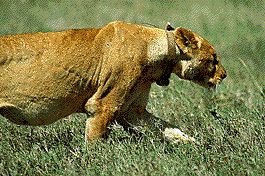The units of selection - Why are adaptations mainly at the level of the organism?

An example: hunting skill in lions
Consider an improvement in lion hunting skill - perhaps because of some new behavioral trick. When the improvement first appeared, it was a single genetic mutation. The lions with the mutation will survive better and produce more offspring. Natural selection is starting to work. Now we can ask what natural selection is adjusting the frequency of. Is it lions? Lion genomes? Or the mutation? The theorists Williams and Dawkins argue that it is the gene: the particular mutation that produces improved hunting.
• Why not lions? Natural selection cannot work on whole lions because lions die: they are not permanent.
• Why not the genome? The mutant lion's offspring inherit only genetic fragments, not a copy of a whole genome, from their parents. Meiotic recombination breaks the genome. In Williams' expression, “meiosis and recombination destroy genotypes [i.e. genomes] as surely as death”.
What matters, in the process of natural selection, is that some of the lion's offspring inherit the mutation. These offspring in turn produce more offspring, and the gene increases in frequency. The gene, in the form of copies of itself, is potentially immortal, and is at least permanent enough for it to be possible to alter its frequency in successive generations.
| Next |



